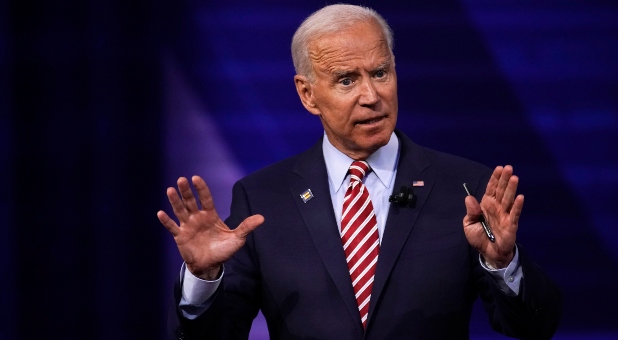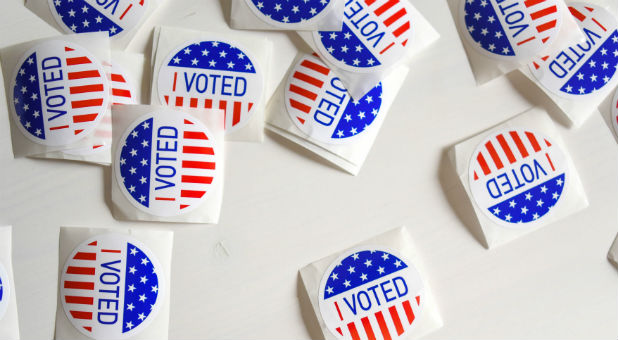While America begins another day without certainty of whom the next president will be, with former vice president Biden six electoral votes away from clinching, a number of impactful ballot proposals are changing laws in 32 states. Though some dealt with issues like parks funding, others asked voters to consider laws on abortion and drugs.
Right-to-Life Bill
Louisiana voters took a stand for life, passing an amendment to protect unborn babies. The Love Life Amendment, or Amendment 1, adds this language to the state constitution: “To protect human life, nothing in this constitution shall be construed to protect a right to abortion or the tax payer funding of abortion.”
Sixty-five percent of voters supported the measure, with 34% dissenting.
“The Supreme Courts of 12 other states (as recently as 2018 in Iowa) have found a right to abortion in their state constitutions, striking down common-sense pro-life laws in the short term and ensuring abortion-on-demand in their states even if Roe v. Wade is overturned,” said Benjamin Clapper, executive director of Louisiana Right to Life. “We cannot let that happen in Louisiana. By passing the Love Life Amendment we can place our pro-life values of respecting every human life at the heart of our state.”
In Colorado, however, a proposal initiative to outlaw abortion throughout a woman’s pregnancy failed. The state is 1 of 7 to allow abortion until birth. Previous ballot proposals also failed in 2008, 2010 and 2014.
Legalizing Drugs
Oregon became the first state to “decriminalize” hard drugs. It could begin a landfall of future proposals to legalize use of street drugs, such as cocaine, heroin and methamphetamine. The state drug initiative allows people arrested with small amounts of hard drugs to pay a $100 fine and attend an addiction recovery program. They avoid a trial and possible jail time.
Treatment centers are being funded from revenue generated by legalized marijuana, which has been legalized for use for several years. The proposal was supported by the Democratic Party and fought by Republicans and a contingent of prosecutors, who warned that enactment would come at the expense of public safety.
In a separate proposal, Oregon voters legalized the use of psychedelic mushrooms “for therapeutic use,” language many of the marijuana proposals used when the legalization of drugs began at the state level.
In New Jersey and Arizona, voters legalized marijuana for adults 21 and older. The legislature in New Jersey is now looking to pass a measure to set up the new marijuana marketplace.
In Arizona, election outcomes allow people convicted of certain marijuana crimes to seek to have their records cleared of the conviction. When a similar bill was presented to voters in 2016, it was defeated, showing a change in societal attitudes on legalizing drug use.
Mississippi voters approved an “activist-led” initiative for medical marijuana use, becoming the 35th state to legalize its use, according to Marijuana Moment.
South Dakota passed recreational and medical marijuana initiatives.
Montana legalized cannabis production and use, setting the legal age at 21.
“This result illustrates that support for adult-use marijuana legalization extends across geographic and demographic lines,” National Organization of the Reform of Marijuana Laws (NORML) Executive Director Erik Altieri said. “Marijuana legalization is not exclusively a ‘blue’ state issue, but an issue that is supported by a majority of all Americans—regardless of party politics.”
With much of the nation embracing marijuana use, leading to measures like Oregon’s inclusion of street drugs, cannabis continues to be defined as containing “mind-altering chemical THC and other similar compounds.”
“Marijuana is the most commonly used psychotropic drug in the United States, after alcohol,” according to the National Institute on Drug Abuse.
A decade ago, recreational marijuana was illegal in all 50 states. As voters went to the polls Tuesday, it was already legalized in 11 states and Washington, D.C. State by state initiatives are being sought by activist groups to build a case to pressure Congress to legalize marijuana nationwide.
As election results continue to undergo scrutiny, ministers and charismatic leaders from around the country continue to offer Christians encouragement.
“Of this we can be sure: if God has ordained a Trump victory, no amount of alleged voter fraud or dishonest tactics can overturn that. Let us continue to pray, “Your will be done,” trusting that whatever His will is, He will bring it to pass,” wrote Dr. Michael Brown, radio host, author and professor.
Of this we can be sure: if God has ordained a Trump victory, no amount of alleged voter fraud or dishonest tactics can overturn that. Let us continue to pray, “Your will be done,” trusting that whatever His will is, He will bring it to pass.
— Dr. Michael L. Brown (@DrMichaelLBrown) November 4, 2020
“Tonight I feel compelled to call believers across the world to pray for integrity in this election process,” tweeted worship leader Sean Feucht. “This is a crucial moment for the peace and prosperity of our nation.”
{eoa}
See an error in this article?
To contact us or to submit an article






















